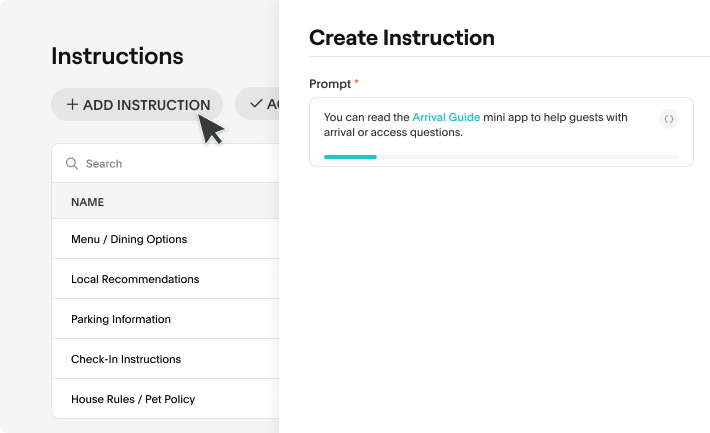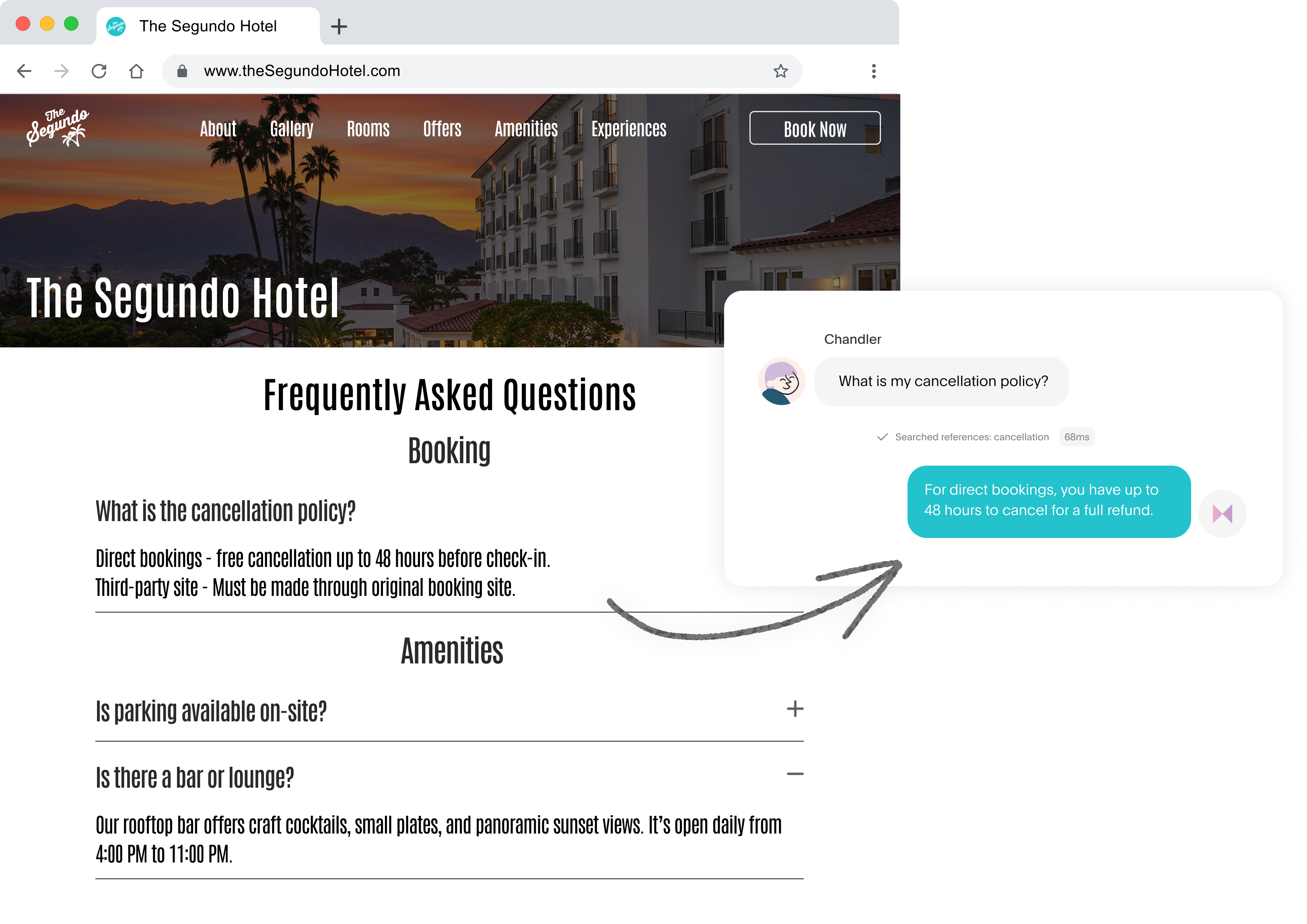5 Ways the Hotel Industry Can Be More Sustainable
Climate change is a major and growing concern worldwide, so it’s up to governments, companies, and individuals to do their parts in becoming more sustainable. In the hotel industry, there has been a growing interest in sustainability, for good reason. Not only does sustainability help the environment, but it can also benefit hotels themselves, as sustainability can enable hotels to save on operational costs and improve the overall guest experience. With this in mind, here are a few actions hotels can take to become more environmentally-conscious.

1. Save paper by going digital.
Did you know that about 23% of the total municipal solid waste generated in the United States in 2018 was paper and paperboard? The question, then, is: why waste paper when you can accomplish the same things via digital means in the hotel industry?
Hotels typically require paper for things like registration forms or marketing brochures. When you consider how many guests a hotel serves in a year, the amount of paper waste can really accumulate. Rather than letting all that paper go to waste, hotels can set up many of their operations digitally. Processes like check-in can be done securely online, and this can even be completed before guests arrive on property. Not only does a digital check-in process save paper, but it can also save time for both guests and staff.
Marketing brochures can also be adapted to a digital platform, saving paper in the process. With alternatives like digital booklets, hotels can present their best offerings on a mobile-friendly one-pager. And when hotels want to make any changes to their marketing brochures, they can simply edit the booklet online, rather than changing and reprinting new paper brochures.

2. Maintain constant communication to determine guest needs.
In hotels, towels or sheets are often washed only after one or a few uses, wasting a great deal of water and money in the process. In reality, not that many people wash their towels or sheets after only one use at home, so there’s an opportunity to cut water waste through a new hotel laundry process. Instead of washing towels or sheets after only one use, hotels can stay in clear communication with guests, so they only do laundry when they actually need to.
To enable this, hotels can stay in constant communication with guests to assess their needs and respond to them. A simple way to do this is through guest text-messaging, which has a 98% open rate, compared to a 52% answer rate for phone calls in the United States. Since texting has such high engagement rates, hotels can use this channel as a way to ask guests whether they need their towels or sheets replaced.
Hotels can also offer incentives for guests to change their towels or sheets less frequently, such as points for rewards programs or discounts on various services. Preventing waste can be mutually beneficial for guests and hotels, aside from the environmental benefits.

3. Change how hotel restaurants serve food.
Eating meat can have a major impact on greenhouse gas emissions. According to the Food and Agriculture Organization of the United Nations, 14.5% of the world’s greenhouse gas emissions are caused by livestock. Out of the different types of meat, beef and lamb usually have greater carbon footprints than other animals.
While hotel restaurants can’t make their guests choose to eat less meat, they can offer up more delicious meatless dining options. As more people choose to eat less meat over time, having a variety of appealing meatless options can make the decision much easier.
Hotels can also reduce food waste by changing the way they serve food. Rather than wasteful buffets, they can make food to order. By changing the format of food service, restaurants can not only be more sustainable, but they can also save money by not wasting large quantities of food.

4. Move towards solar energy.
Unlike some other energy systems, solar energy doesn’t pollute the air. In places where the sun shines for a great portion of the year, the switch to solar energy can be largely beneficial, for both hotels and the environment. Switching to solar energy can be a great investment to save hotels a great deal of money on operating costs over time, allowing them to invest more in other areas that can further improve the guest experience.
There are some hotels that have already been making the switch to solar energy, either partially or fully replacing previous energy systems. Not only does the switch help hotels save on energy costs, but it can also appeal to more guests who are environmentally-conscious, allowing for even greater guest satisfaction.

5. Reduce plastic usage.
In the United States, plastics accounted for 12% of the municipal solid waste generated in 2018, but only about 4.5% of the total municipal solid waste properly recycled that year were plastics. In fact, 91% of plastic worldwide is not recycled.
Unfortunately, plastics take hundreds of years to decompose, and many types of plastic can never actually decompose, creating lasting damage to the planet. Oftentimes, plastics end up in landfills or polluting the ocean, which ultimately has a deadly effect on marine life. As humans, we depend heavily on the ocean, and things that are harmful to the ocean can ultimately be harmful to human health. Considering this, it’s very important to cut down plastic usage as much as possible, wherever we can.
The hotel industry is no stranger to wasting plastic. With single-use plastic straws and utensils, plastic containers and wrappings for toiletries, and even key cards, the hotel industry consistently contributes to plastic waste. However, the purpose of this blog is not to berate the industry for its environmentally damaging actions; it’s to offer alternatives in order to reduce this waste.
Hotels can make a concerted effort to switch to more environmentally-friendly alternatives to plastics. One alternative that can work to address this is using compostable materials for utensils, bowls and plates, coffee cups and lids, and other general needs that are usually met with plastic. Compostable materials are designed to break down within a few months, which is significantly less time than regular plastics.
Hotels can also change the way they distribute toiletries to avoid further plastic waste. Rather than providing tiny toiletries that end up in landfills, they can switch to refillable dispensers for shampoo, soap, and lotion. Hotels can also try more eco-friendly suppliers that don’t use plastic packaging for their products.
Another way to cut down plastic usage is to use digital means wherever possible. Usually, physical keycards are made of plastic. An alternative is to use digital keys, where guests can simply unlock their hotel rooms with their smartphones or by using a digital key code. Companies like Flexipass, RemoteLock, and OpenKey enable guests to enter their rooms without the usual plastic keycard, thus reducing some plastic usage in hotels.
In Conclusion
The hotel industry has a great deal of potential to make a positive impact on the environment. While the desire to help the environment is a great motivation by itself, hotels can also benefit from sustainable practices in other ways. Hotels can save money on operating costs, and they can meet rising consumer demands for more environmentally-friendly practices from all businesses. When hotels can meet guest expectations and align with their values by using more eco-friendly practices and products, guests can ultimately have even better experiences with those hotels. And for the hotel industry, happy guests make for happy hotels.
Time is one the greatest asset and one of the things that [Akia] has helped us out as a property tremendously.
Wanny M.
Marketing Associate
Time is one the greatest asset and one of the things that [Akia] has helped us out as a property tremendously.
Ethan Fishbane
Director of The Front Office, Prince Waikiki
Schedule of events and useful links
Never miss a beat with our comprehensive schedule of events and collection of useful links.

Schedule of events and useful links
Never miss a beat with our comprehensive schedule of events and collection of useful links.

See Akia in action!
Schedule a demo today and learn how our hospitality platform can transform your operations and elevate your guest experience.














